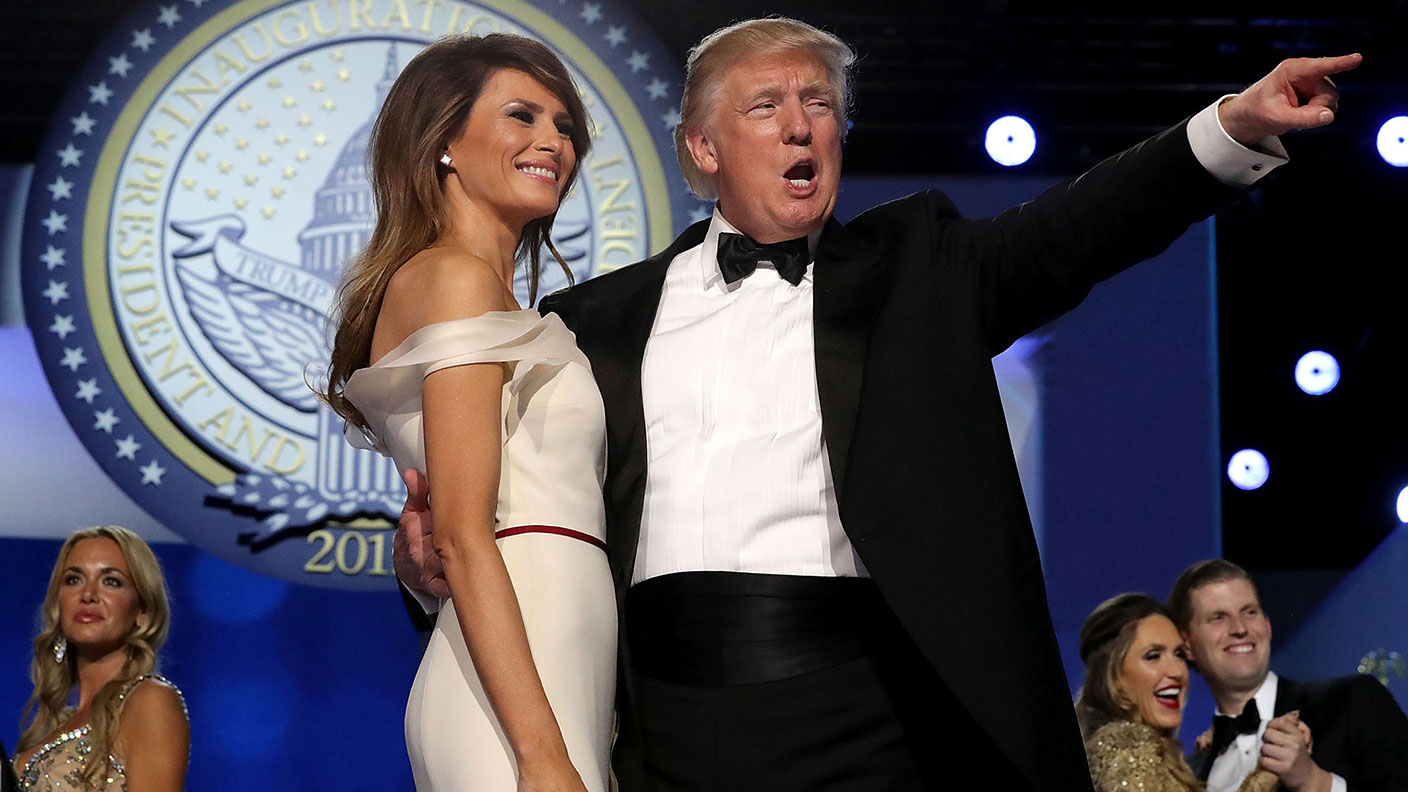Does it really matter who ends up in the White House?
Whoever wins the US election – be it Joe Biden or Donald Trump – is likely to spend piles of money to drive the recovery from Covid-19.


Get the latest financial news, insights and expert analysis from our award-winning MoneyWeek team, to help you understand what really matters when it comes to your finances.
You are now subscribed
Your newsletter sign-up was successful
Want to add more newsletters?

Twice daily
MoneyWeek
Get the latest financial news, insights and expert analysis from our award-winning MoneyWeek team, to help you understand what really matters when it comes to your finances.

Four times a week
Look After My Bills
Sign up to our free money-saving newsletter, filled with the latest news and expert advice to help you find the best tips and deals for managing your bills. Start saving today!
When Donald Trump was elected four years ago, one of the most memorable quotes of the day came from Nobel Prize-winning economist Paul Krugman. Writing in The New York Times in the immediate aftermath, at a time when futures trading indicated that markets were set to plunge, Krugman confidently stated: “If the question is when markets will recover, a first-pass answer is never”. Since that day, the US stockmarket – as measured by the S&P 500 index – has gained about 60%. Indeed, if you’d bought the index on election day, you’d have spent virtually no time at all in the red. So much for “never”.
You can take quite a few useful lessons from this. One – don’t listen to hopelessly partisan people, even when they claim to be experts. Two – it often pays to bet against the conventional wisdom and the stronger the convictions behind that wisdom, the bigger the pay-off. It’s easy to forget now, but Krugman’s view was not at all unusual prior to Trump’s election. Virtually everyone thought that Hillary Clinton would win and most people found the idea of a Trump victory inconceivable. The idea that markets would rally that very day, let alone spend most of the next four years going up (barring a global pandemic), would have seemed outlandish, even to those without strong views on the election outcome. As it turns out, whatever else Trump did or did not do (we look at his record so far this week), the most catastrophic predictions for his time in office have not come to pass. Yes, it was a low bar to beat – but that’s the point.
But I think the most important lesson as we head into next week is this: by the time our next issue comes out, the voting will be over. Whether we’ll know the result by that point is another matter. But what really matters for markets in the longer term (and we’re all longer-term investors here, or at least that’s what we should be aiming for) is not who ends up in the White House, or even how long it takes for them to get there. Is the S&P 500 higher today because of anything Trump did? I doubt it. If Clinton had won, I imagine the S&P would have seen similar gains and rather than Trump’s tax cuts, today we’d be rationalising them with talk about Clinton’s healthcare stimulus package or whatever.
MoneyWeek
Subscribe to MoneyWeek today and get your first six magazine issues absolutely FREE

Sign up to Money Morning
Don't miss the latest investment and personal finances news, market analysis, plus money-saving tips with our free twice-daily newsletter
Don't miss the latest investment and personal finances news, market analysis, plus money-saving tips with our free twice-daily newsletter
In reality, markets pushed higher because inflation remained tame and the secular decline in long-term interest rates just carried on regardless. The real surprise for markets will come when this ends. Whoever is in power – be it Joe Biden or Trump – is likely to be much more open to spending piles of money to drive the recovery from Covid-19, particularly as it looks like the virus isn’t done scaring our politicians yet.
We’ll have a lot more on the implications of this shift from a disinflationary environment to a more inflationary one in next week’s issue, which happens to mark the 20th anniversary of MoneyWeek’s launch. We’ll be looking far beyond the presidential election to focus on the biggest investment trends for the next 20 years. We’d also like to hear from you. If you haven’t yet answered our five questions on big technological and investment events that might happen between now and 2040, then go and read them on page 18 and email us your thoughts. Get your answers in by Monday morning though – we’ll be publishing the best ones in the next issue.
Get the latest financial news, insights and expert analysis from our award-winning MoneyWeek team, to help you understand what really matters when it comes to your finances.

-
 Average UK house price reaches £300,000 for first time, Halifax says
Average UK house price reaches £300,000 for first time, Halifax saysWhile the average house price has topped £300k, regional disparities still remain, Halifax finds.
-
 Barings Emerging Europe trust bounces back from Russia woes
Barings Emerging Europe trust bounces back from Russia woesBarings Emerging Europe trust has added the Middle East and Africa to its mandate, delivering a strong recovery, says Max King
-
 Barings Emerging Europe trust bounces back from Russia woes
Barings Emerging Europe trust bounces back from Russia woesBarings Emerging Europe trust has added the Middle East and Africa to its mandate, delivering a strong recovery, says Max King
-
 How a dovish Federal Reserve could affect you
How a dovish Federal Reserve could affect youTrump’s pick for the US Federal Reserve is not so much of a yes-man as his rival, but interest rates will still come down quickly, says Cris Sholto Heaton
-
 Three companies with deep economic moats to buy now
Three companies with deep economic moats to buy nowOpinion An economic moat can underpin a company's future returns. Here, Imran Sattar, portfolio manager at Edinburgh Investment Trust, selects three stocks to buy now
-
 Should you sell your Affirm stock?
Should you sell your Affirm stock?Affirm, a buy-now-pay-later lender, is vulnerable to a downturn. Investors are losing their enthusiasm, says Matthew Partridge
-
 Why it might be time to switch your pension strategy
Why it might be time to switch your pension strategyYour pension strategy may need tweaking – with many pension experts now arguing that 75 should be the pivotal age in your retirement planning.
-
 Beeks – building the infrastructure behind global markets
Beeks – building the infrastructure behind global marketsBeeks Financial Cloud has carved out a lucrative global niche in financial plumbing with smart strategies, says Jamie Ward
-
 Saba Capital: the hedge fund doing wonders for shareholder democracy
Saba Capital: the hedge fund doing wonders for shareholder democracyActivist hedge fund Saba Capital isn’t popular, but it has ignited a new age of shareholder engagement, says Rupert Hargreaves
-
 Silver has seen a record streak – will it continue?
Silver has seen a record streak – will it continue?Opinion The outlook for silver remains bullish despite recent huge price rises, says ByteTree’s Charlie Morris